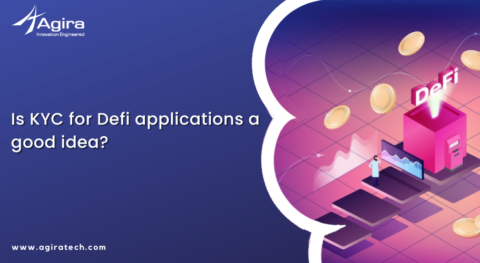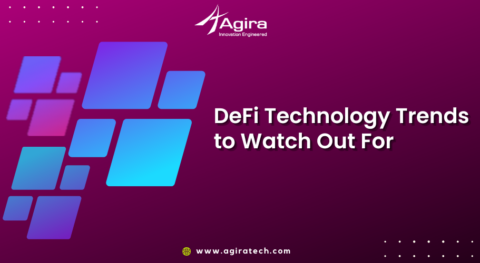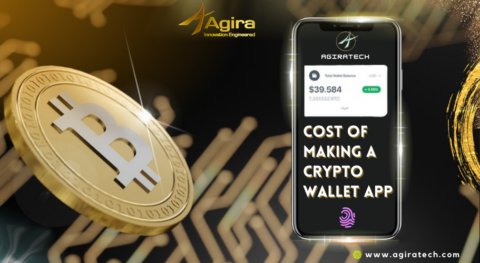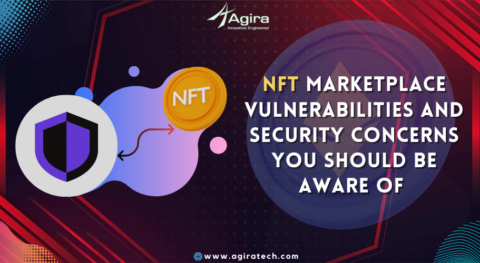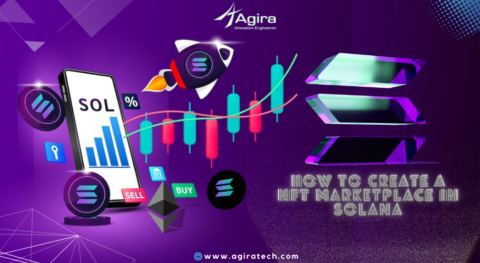Since blockchain’s creation, it has slowly found its application in all possible sectors. But the uses and benefits it brings to the financial industry are unmatched. NFT, DEX, DeFi, DApps, and the list goes on. There have been way too many blockchain applications. But here, we look at two of them in specific – NFT and DeFi. NFT provides a value proposition, while DeFi offers a platform for financial transactions. The two now merge to transform the way we manage finances.
A quick look at NFTs and DeFi
NFT, as we know, are non-fungible tokens, which can be anything digital. You name it from digital art to digital real estate, and it’s there. They represent real-life items recorded on the blockchain as unique digital assets. Unlike fungible tokens, like Bitcoin, NFTs are unique and one of a kind.
DeFi is an alternative finance management system. It relies on blockchain to securely lend, borrow, trade, and earn. The primary purpose of DeFi is to create an ecosystem without intermediaries, like in centralized systems. DeFi can perform everything from loans to invoicing. Like NFTs, DeFi has found a solid market fit and established a large user base.
How can NFT help DeFi?
NFTs have proved themselves in the digital market and made a difference in many traditional operations. They store value and serve as immutable proof of ownership. DeFi, on the other hand, helps unlock this value and operate with tokenized assets. Looking at the two, it is evident that they are mutually beneficial and open new possibilities. There are several aspects of DeFi that can benefit from the adoption of NFTs. Let’s look at a few in detail.
Loan collateralization
In traditional banking, the bank determines the collateral for a loan acquired. If the borrower fails to pay back the loan amount, the bank obtains the collateral. But what if the lender can decide the collaterals? DeFi makes this possible by allowing its users to put up their NFTs as collaterals without location and regulatory restrictions. The lender can examine the NFT’s current value and demand and make calculated decisions. The interest rates will vary depending on these values. This flexibility in NFT lending has raised its TVL to hit $49 billion in 2021. There are multiple platforms where NFT owners can place loan requests- like Arcade, Genesis, and NFTfi.
Fractional ownership
Since the boom of NFTs in 2021, its value has skyrocketed. Many NFTs sell at a crazy high price that it may have to wait for a while before a potential customer shows up. In such cases, it would help to fractionalize the token. Splitting the price and making it more liquid will attract more customers and help people own a fraction of a collectible they could never hold otherwise. The same applies to real estate. Customers can buy a fraction of land or plots using NFTs as a record of ownership. Integrating DeFi and NFT completely transformed the real estate buying experience. The fractional platform makes it possible to split NFTs and generate ERC20-compliant fractions.
Insurance
Insurance policies are costly and involve transactional and administrative costs. The NFT and DeFi duo helps reduce these expenses by converting these policies into NFTs. Thus making it easy to transfer, buy and sell. As NFTs have no expiry date, there is no need for repeated renewal of documents. Hence, it does away with the tedious process of collecting relevant papers and visiting the bank for verification. CoverCompared is a project that combines NFT and DeFi for effective insurance management. Users can buy all products on CoverCompared with crypto on a native marketplace. Also, the platform is now working on granting access to MNC insurance providers for health, life, and travel policies.
Debt management
Another area of finance where NFT and DeFi have made an enormous impact is debt management. The bigger the company is, the more tedious the auditing and finance management, including debt. Using smart contracts, companies can perform recurrent operations- like approvals/renewals, which significantly help reduce time and human error. Also, as DeFi runs on the blockchain, all data stays permanently on the ledger for future references. And if the debt someone owes you has an NFT as collateral, then there is no worry of losing your money. The NFT automatically gets transferred to you without any court action.
Conclusion
Many developers are taking the opportunity to unleash the potential of the NFT DeFi duo. Uniswap3, NFTfi, Charged Particles, and Just Liquidity are a few solutions that have worked on making an impactful difference in the finance sector. With the duo’s growth, we watch its future developments to see what barriers they break. Reach out to our Agiratech strategist to know more about NFTs and DeFi.





